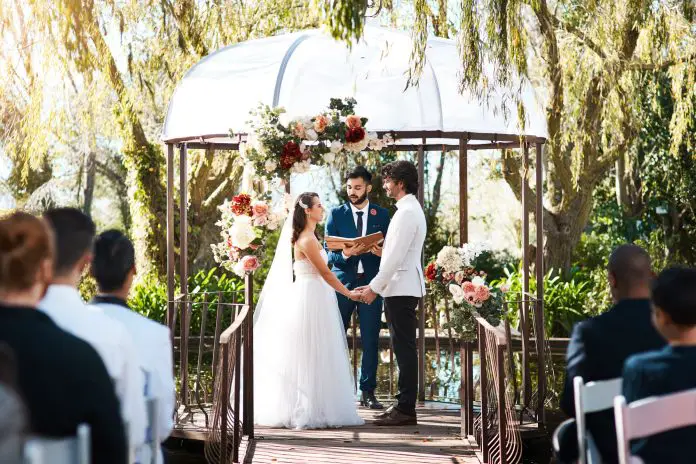Key Takeaways

- Understand Legal Requirements: Research state-specific laws and obtain any necessary licenses to officiate weddings effectively.
- Define Your Style: Choose an officiating style that aligns with your personality and resonates with couples, such as religious, civil, or personalized ceremonies.
- Create Templates: Develop ceremony templates that incorporate traditional and personalized elements, catering to diverse wedding traditions and couple preferences.
- Build an Online Presence: Establish a professional website and social media profiles to showcase your services, share testimonials, and attract potential clients.
- Market Your Services: Network with other wedding professionals and participate in local wedding fairs to enhance visibility and increase referrals for your officiating services.
- Focus on Personalization: Infuse personal touches into ceremonies by understanding couples’ stories and preferences, creating memorable experiences for them and their guests.
Have you ever dreamed of standing at the front of a beautiful ceremony, uniting two people in love? Becoming a wedding officiant might just be the perfect path for you. With the rise in personalized and unique weddings, the demand for officiants is growing, offering a fulfilling opportunity to play a pivotal role in one of life’s most cherished moments.
How to Become a Wedding Officiant

Becoming a wedding officiant involves several clear steps that ensure you provide memorable ceremonies for couples. Follow these steps to establish your role in this fulfilling small business.
- Research state requirements
Research the legal requirements to officiate weddings in your state. Regulations vary by state and may include obtaining a license or registering with a local authority.
- Choose your officiant style
Choose a style that reflects your personality and resonates with couples. Options include religious, civil, or personalized officiating styles.
- Obtain necessary credentials
Obtain credentials to enhance your qualifications. Completing online courses or joining organizations such as the American Association of Wedding Officiants provides credibility.
- Craft your ceremony templates
Craft templates for various types of ceremonies. Include traditional vows, personalized elements, and options for incorporating cultural or religious traditions.
- Create an online presence
Create a website or social media profiles to showcase your services. Include client testimonials and examples of past ceremonies to attract clients.
- Market your services
Market your services through local wedding fairs and collaborations with wedding venues. Networking with photographers, planners, and florists can increase referrals.
- Set your pricing structure
Set a pricing structure that reflects your services and experience. Offer packages that include additional features like rehearsal attendance or personalized vows.
Each step builds towards establishing a reputable position in the wedding officiating industry, allowing you to thrive in this rewarding small business.
Understanding the Role of a Wedding Officiant
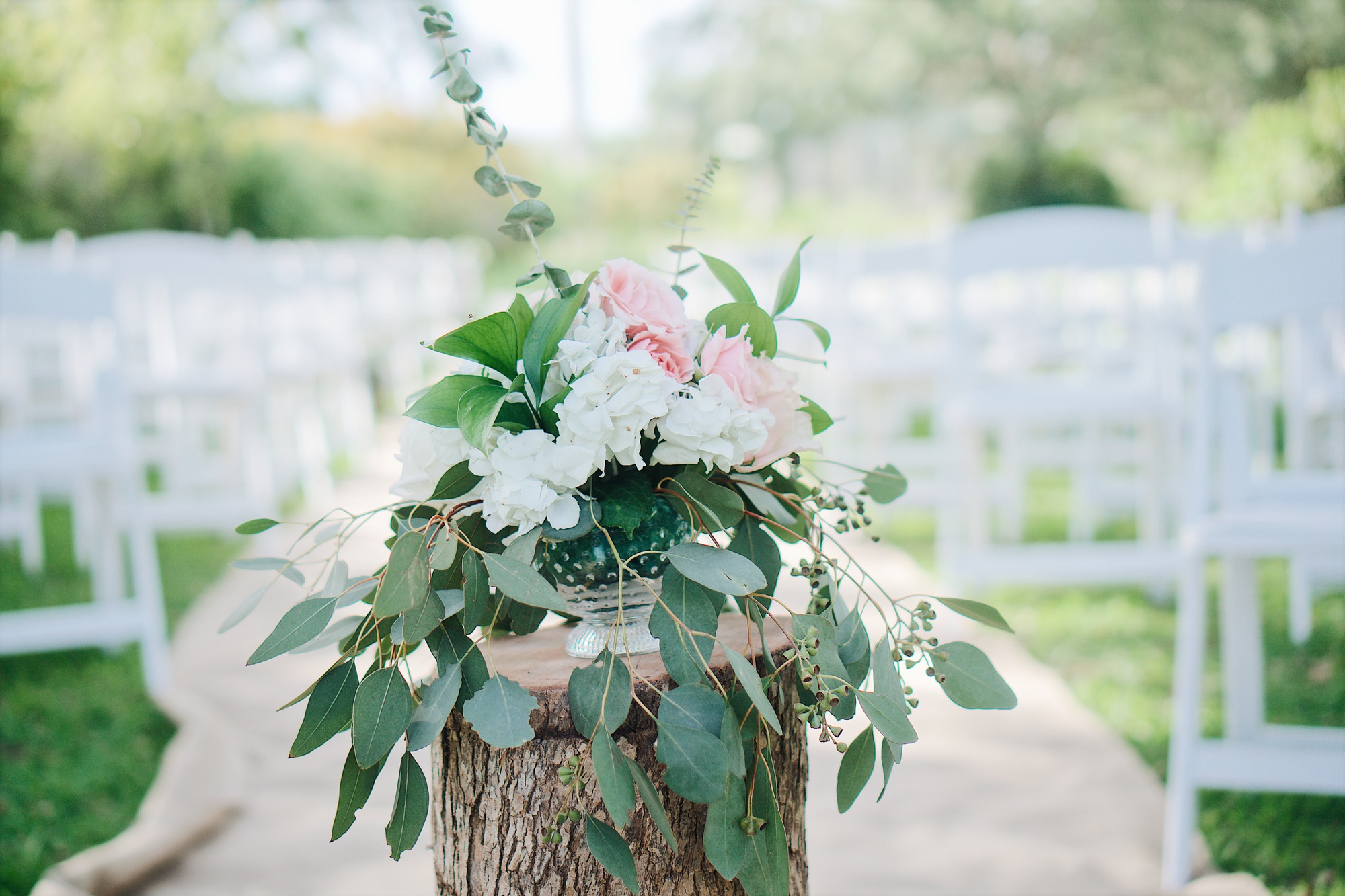
Becoming a wedding officiant involves significant responsibilities and a unique opportunity to add personal touches to a couple’s special day. Understanding the role’s nuances enhances the effectiveness of your small business.
Responsibilities of a Wedding Officiant
- Conducting Ceremonies: Lead wedding ceremonies focusing on the couple’s wishes and values. Familiarize yourself with diverse wedding traditions and formats.
- Filing Legal Documents: Ensure completion of all required legal paperwork after the ceremony. Verify and submit marriage licenses according to local regulations.
- Meeting with Couples: Hold meetings with couples to discuss ceremony details. Listen attentively to their vision and preferences.
- Crafting Vows and Scripts: Create personalized vows and ceremony scripts for couples. Incorporate their love stories, values, and shared interests to enhance authenticity.
- Managing Ceremony Logistics: Coordinate with other vendors and manage time effectively during the ceremony. Ensure all elements flow smoothly on the wedding day.
Importance of Personal Touch
- Creating Unique Experiences: Infuse your personality into ceremonies to reflect the couple’s individuality. This creates memorable experiences that resonate with the couple and their guests.
- Building Relationships: Develop a rapport with couples to better understand their needs and preferences. Strong relationships increase satisfaction and can lead to referrals within the community.
- Enhancing Ceremony Significance: Personal touches amplify the emotional impact of the ceremony. Tailoring elements such as readings, rituals, or themes makes the event more meaningful for everyone involved.
- Encouraging Collaborative Input: Invite couples to share ideas or traditions they wish to incorporate. Collaborative efforts lead to a more customized approach, fostering a sense of ownership in the process.
Understanding these aspects enhances your effectiveness as a wedding officiant and contributes to the growth of your small business in the wedding industry.
Researching Legal Requirements

Research plays a crucial role in becoming a wedding officiant. Understanding the legal requirements ensures compliance and success in your small business.
Understanding State and Local Laws
Identify the specific laws governing wedding officiants in your state and local jurisdiction. Requirements vary across states with some mandating minimum ages or specific credentials. For instance, officiants in California and Florida must be at least 18 years old. Check official state websites for updated regulations to ensure adherence.
Obtaining Required Licenses
Obtain necessary licenses or certifications based on your state’s regulations. Many states recognize online ordination from organizations like The Provenance Center or Universal Life Church. This ordination process is typically free or low-cost. Ensure your chosen method of ordination meets state requirements before proceeding.
Preparing for the Ceremony

Preparation ensures a seamless and memorable wedding ceremony. Gathering the right materials simplifies the process and enhances the overall experience.
Materials Needed
- Ceremony Script: Develop a detailed ceremony script that outlines the proceedings. Include personalized vows and specific rituals that reflect the couple’s preferences.
- Legal Documents: Ensure you have all required legal documents ready, such as marriage licenses. Review local regulations regarding filing procedures to guarantee compliance.
- Sound Equipment: Consider using microphones or amplifiers, especially for outdoor venues. Clear audio helps guests hear every heartfelt moment.
- Seating Arrangements: Coordinate with the couple to understand their desired seating layout. Prepare a plan that accommodates the number of guests effectively.
- Decorative Elements: Gather any special items the couple wishes to include, such as unity candles or sand ceremony materials. These elements add a distinctive touch to the event.
- Emergency Kit: Prepare an emergency kit with items such as tissues, safety pins, and sewing kits. Being equipped helps address unexpected situations, ensuring you maintain professionalism.
- Signage: Create directional signs if the ceremony venue is large or complex. Clear signs direct guests to the necessary locations, enhancing their experience.
- Personal Touches: Discuss with the couple any unique customs or traditions they want to incorporate. Personal touches enhance the ceremony’s significance and make it memorable.
Organizing these materials promotes a successful ceremony and solidifies your reputation as a reliable wedding officiant, supporting your growth in the wedding officiating business.
Writing Your Own Ceremony

Crafting a personalized wedding ceremony script is essential for creating a memorable experience for the couple and their guests. Incorporating unique elements and personal touches can elevate your officiating skills and strengthen your small business.
Structuring the Script
- Begin with an Opening: Start with a warm greeting to welcome everyone present. Set a positive tone that reflects the couple’s personality.
- Introduce the Couple: Share brief anecdotes or insights into the couple’s relationship. Personalizing this segment engages guests and celebrates the couple’s love story.
- Recite Readings: Include meaningful readings or quotes that resonate with the couple. Select options that reflect their values or relationship.
- Address the Commitment: Discuss the significance of the vows and the commitment the couple is making. Frame it as a celebration of their love.
- Lead the Vows: Guide the couple as they recite their vows. Ensure they understand the importance of this part of the ceremony.
- Formal Pronouncement: End with the legal phrase that officially declares the couple married. Maintain clarity and enthusiasm to enhance this moment.
- Conclude the Ceremony: Wrap up with a closing statement that encapsulates the celebration. Encourage applause and joy from the guests.
Incorporating Personal Stories
- Highlight Key Moments: Identify significant milestones in the couple’s journey. Describe how they met, their first date, or a pivotal moment in their relationship.
- Include Anecdotes from Friends and Family: Ask the couple for special stories that friends and family can share. Selecting contributions can create a deeper connection within the ceremony.
- Connect Stories to Themes: Align personal stories with overarching themes in the ceremony. For example, if the couple values adventure, incorporate travel experiences they’ve shared.
- Engage Emotions: Select heartfelt stories that evoke laughter or tears. Emotional connections enhance the impact of the ceremony.
Combining these elements in your script not only fosters a personalized atmosphere but also showcases your commitment as an officiant. Building a unique ceremony enhances your growing small business while fulfilling your role in one of the most important days in the couple’s lives.
Performing the Ceremony
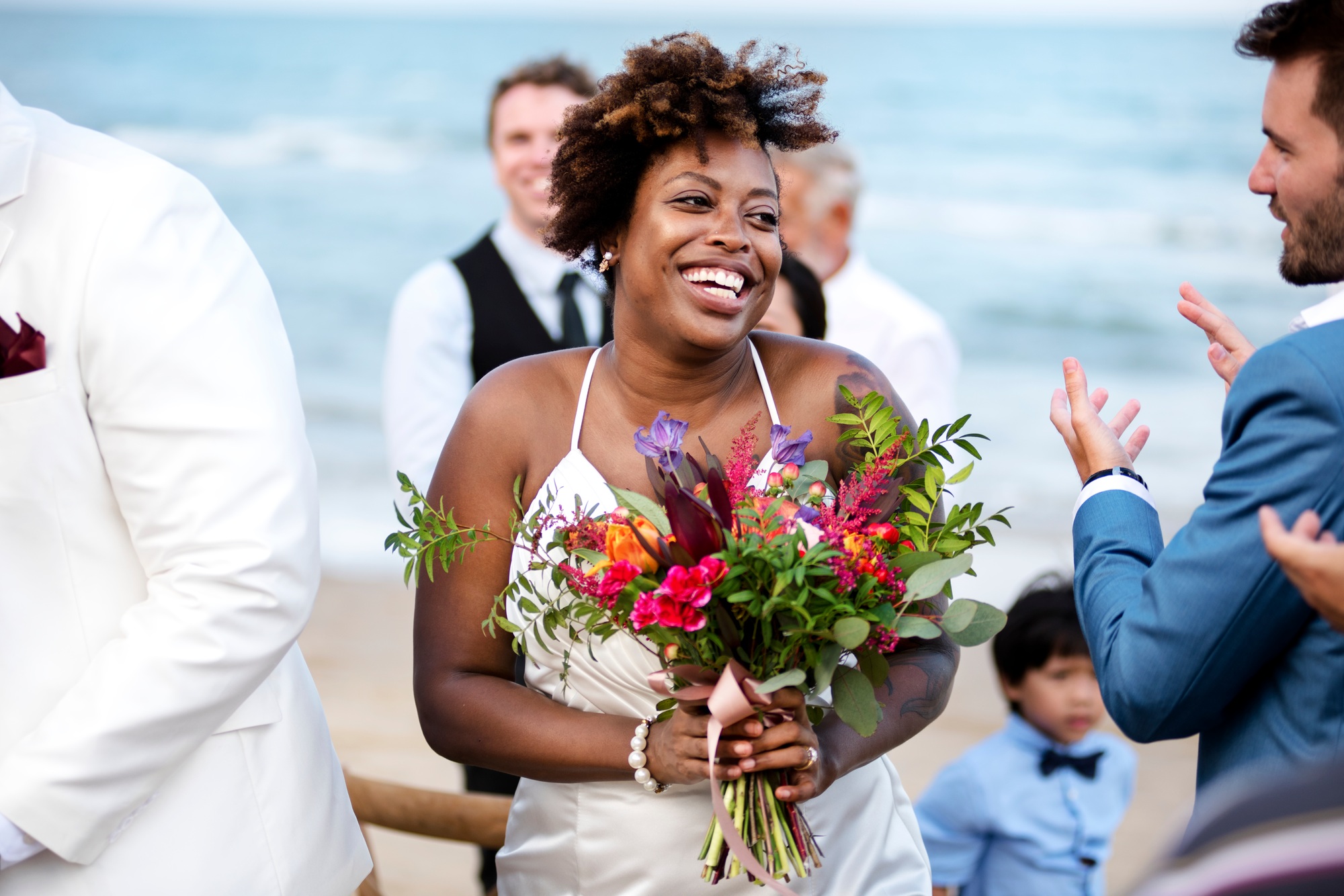
Executing a successful wedding ceremony requires careful planning and practice. Focus on rehearsal and delivery to ensure a memorable experience for the couple and their guests.
Rehearsing with the Couple
Schedule at least one rehearsal with the couple prior to the wedding day. Arrange the rehearsal for the week of the ceremony to refine logistics and integrate personal touches. Walk through the ceremony together. Confirm the order of events and address any last-minute changes. Encourage couples to share their vision to personalize the ceremony further. Practicing vows aloud enhances comfort and confidence. Ensure all parties involved understand their roles during the ceremony.
Delivering the Ceremony
Deliver the ceremony with clarity and confidence. Begin with a warm and welcoming introduction to set a positive tone. Speak clearly while maintaining eye contact with the couple and guests. Highlight meaningful stories about the couple, emphasizing their connection. Clearly articulate the significance of the vows and guide the couple during the exchange. Mark the occasion with a formal pronouncement of marriage. Conclude with a celebratory closing statement that invites the audience to share in the joy of the couple. This delivery not only creates an engaging atmosphere but also supports your reputation as a reliable officiant in your small business.
Post-Ceremony Responsibilities
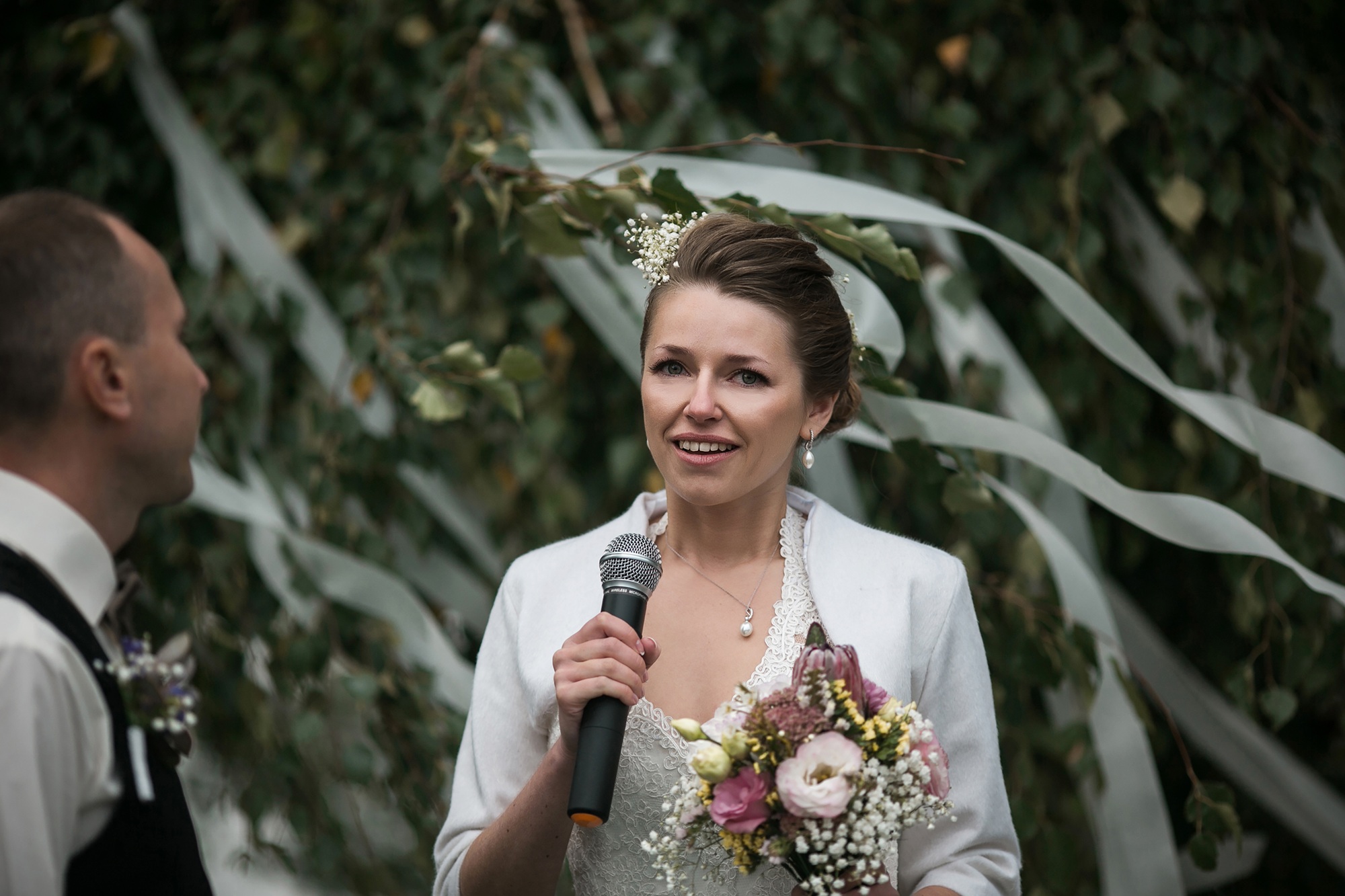
Understanding your responsibilities after the ceremony is crucial for maintaining professionalism as a wedding officiant and ensuring the couple’s legal needs are met.
Filing Legal Paperwork
Filing the legal paperwork constitutes a critical post-ceremony responsibility. Completing the marriage license promptly and accurately guarantees that the marriage is officially recognized. Follow these steps:
- Sign the Marriage License: Ensure you and the couple sign the marriage license immediately after the ceremony, confirming the legal union.
- Verify Details: Double-check all details on the marriage license, including names and dates, to avoid any mistakes that could cause issues later.
- Submit the License: Deliver the signed marriage license to the designated county clerk’s office within the time frame outlined by state laws, typically within 10 days of the ceremony.
Following Up with the Couple
- Send a Thank You Note: A personalized thank you note expresses gratitude to the couple for allowing you to officiate their wedding, fostering a positive connection.
- Request Feedback: Invite the couple to share their experience, which provides valuable insights and helps improve your services.
- Share Photos or Social Media Tags: Encourage the couple to share photos from the wedding day. Tagging your business increases visibility and attracts potential clients.
- Stay Connected: Maintain communication with the couple for future opportunities, such as officiating vow renewals or referrals to friends.
Troubleshooting Common Issues
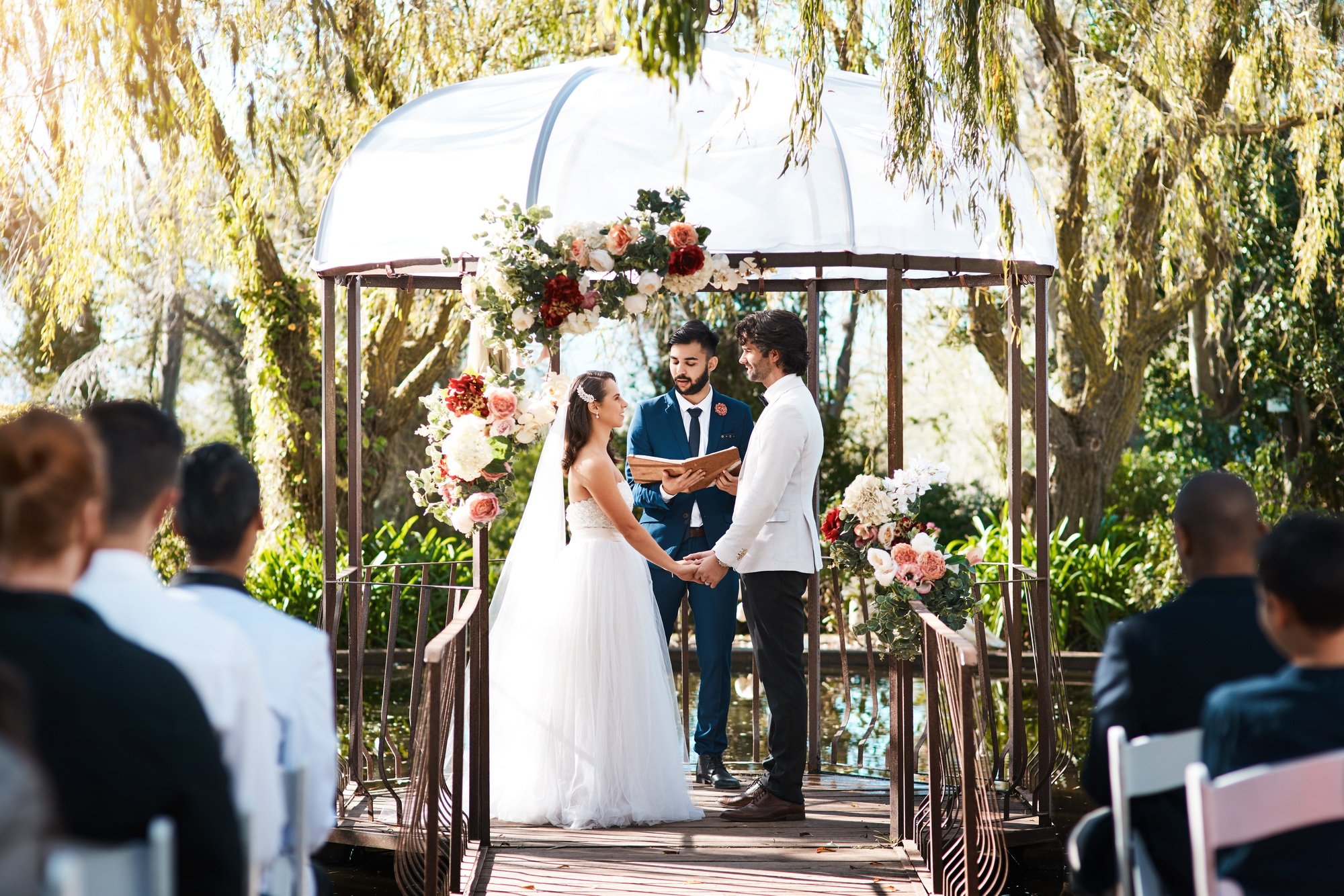
Common issues can arise in your journey as a wedding officiant. Addressing these challenges allows for smooth ceremonies and a thriving small business.
Handling Nerves Before the Ceremony
Prepare to manage nerves effectively. Practice your script multiple times to build confidence and familiarity. Breathe deeply before stepping in front of the couple and guests. Focus on the joy of uniting the couple rather than the spotlight on you. Engage in visualization techniques by imagining a successful ceremony. Lastly, remind yourself of your preparation and the meaningful role you play.
Addressing Last-Minute Changes
Be ready for adjustments as plans may shift unexpectedly. Maintain flexibility by reviewing key aspects of the ceremony before the event. Communicate effectively with the couple and vendors during the planning stage to establish a clear understanding. Develop a backup plan for weather or location changes. Stay calm and composed, focusing on the couple’s joy, which ultimately drives a successful ceremony.
Helpful Tips for Aspiring Officiants
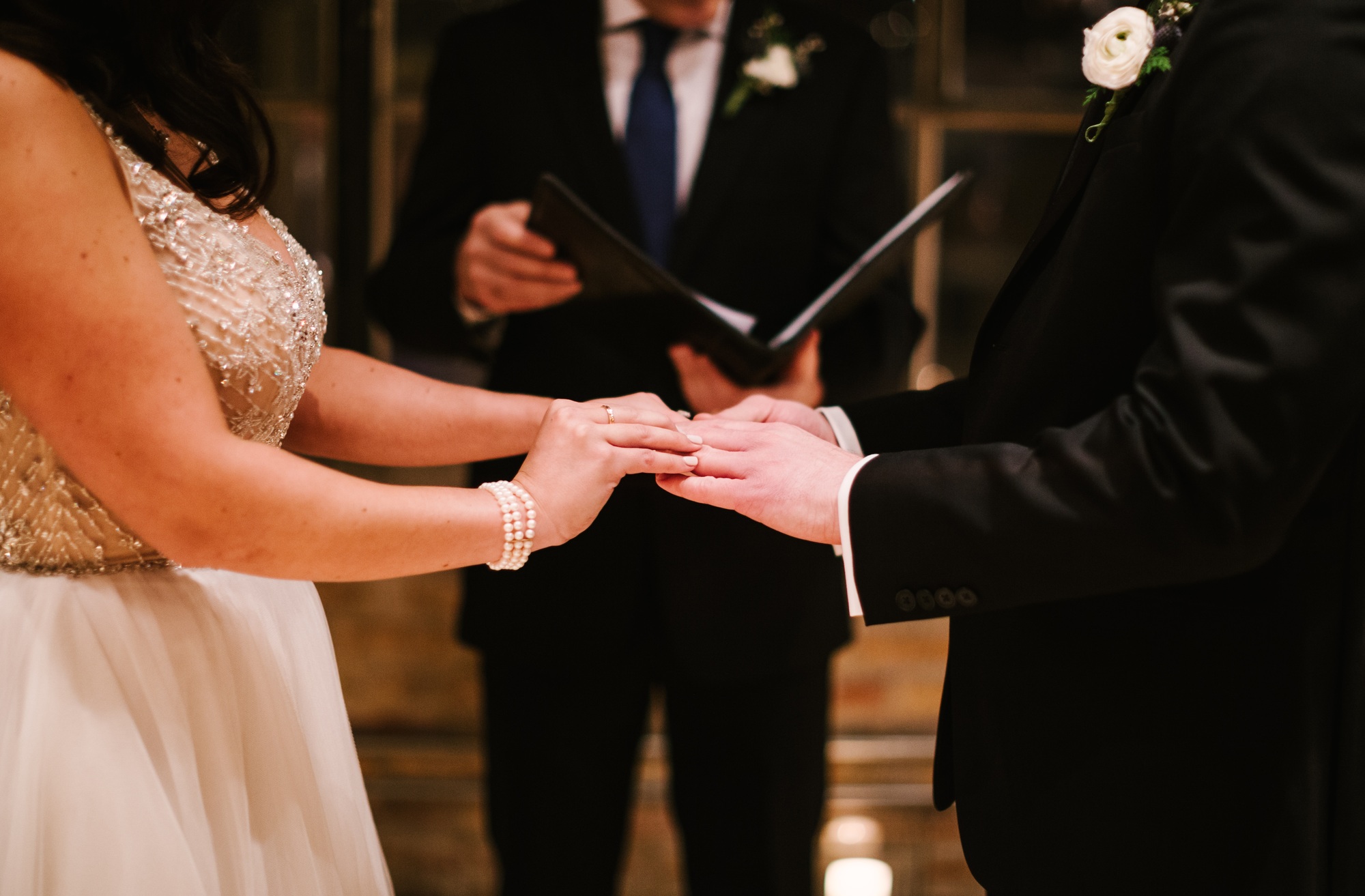
Building a Portfolio
Compile a portfolio that showcases your officiant experience and capabilities. Include examples of wedding scripts, testimonials from couples, and photographs from ceremonies. Ensure that the portfolio highlights your unique style and versatility across various types of weddings. Use this portfolio to provide potential clients with a clear understanding of your services and what they can expect when choosing you for their special day.
Marketing Yourself
Develop a marketing strategy to promote your officiant services effectively. Create a user-friendly website featuring your portfolio, service descriptions, and contact information. Utilize social media platforms to connect with engaged couples and showcase photos from past ceremonies. Consider offering promotional rates or referral discounts to attract new clients. Engaging with local wedding fairs and networking events can also amplify your visibility within the community, ultimately helping you grow your small business.
Conclusion

Becoming a wedding officiant can be a deeply rewarding journey that allows you to make a lasting impact on couples’ lives. By following the steps outlined in this guide and embracing your unique style, you’ll be well on your way to establishing a successful officiating career.
Focus on building genuine connections with couples and personalizing their ceremonies to create unforgettable experiences. With dedication and creativity, you can thrive in this growing industry while celebrating love in its many forms. Your passion for uniting couples will shine through and set you apart in the world of wedding officiants.
Frequently Asked Questions
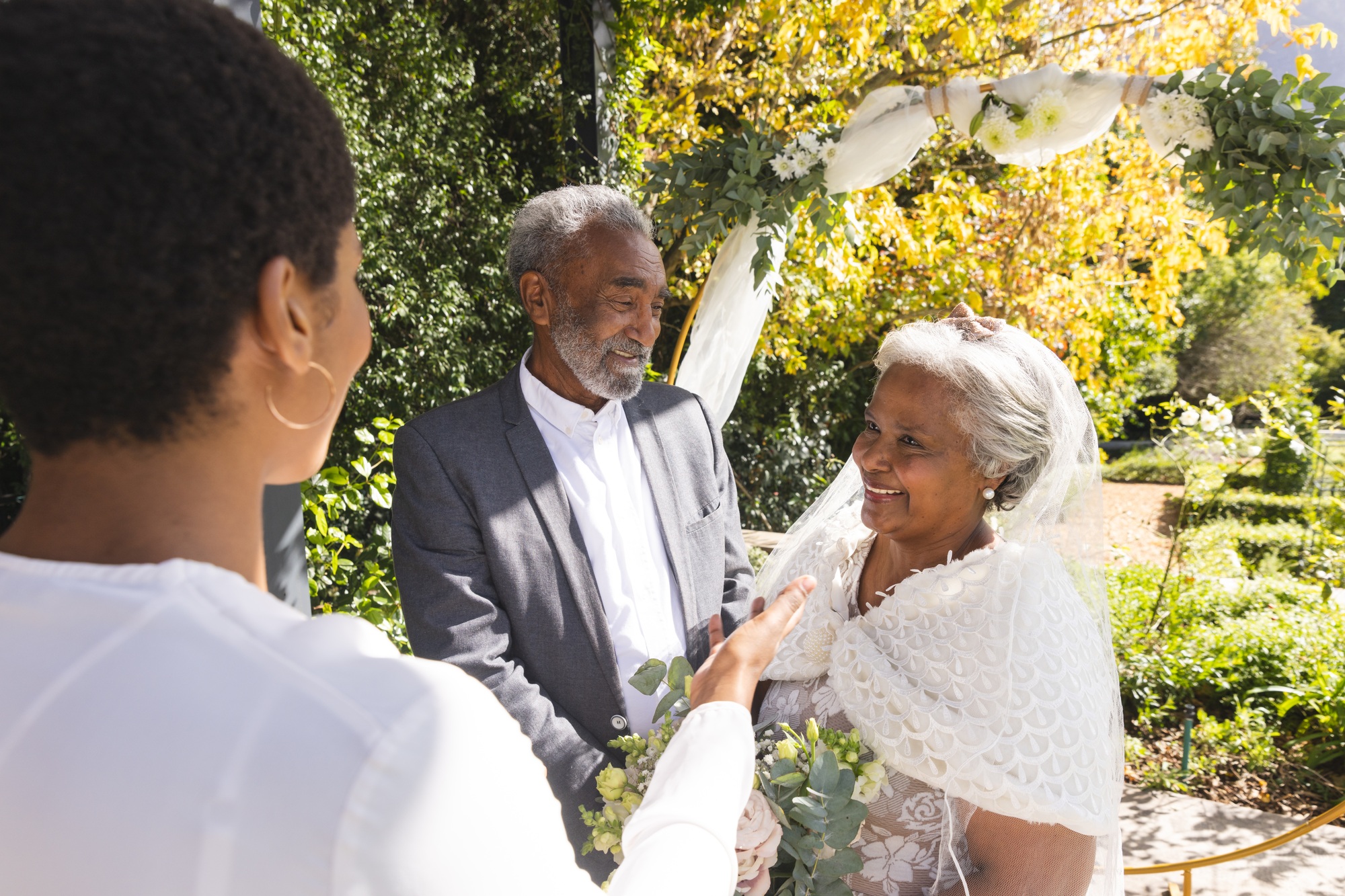
What is the role of a wedding officiant?
A wedding officiant conducts the marriage ceremony, ensures it reflects the couple’s wishes, and handles the legal paperwork. They meet with couples to discuss details, craft personalized vows, and manage ceremony logistics to create memorable experiences.
How do I become a wedding officiant?
To become a wedding officiant, research your state’s legal requirements, choose your officiant style, obtain necessary credentials, and craft ceremony templates. Additionally, create an online presence, market your services, and establish a pricing structure.
What are the legal requirements to officiate a wedding?
Legal requirements to officiate a wedding vary by state and include obtaining licenses or certifications. It’s crucial to research local laws to ensure compliance and successfully officiate marriages.
How can I market my wedding officiant services?
Market your wedding officiant services by creating a user-friendly website, leveraging social media, and engaging in local wedding fairs. Building a portfolio and showcasing past ceremonies can also attract potential clients.
What should I include in a wedding ceremony script?
A wedding ceremony script should include an introduction, the couple’s vows, any readings, and the pronouncement of marriage. Personal touches and unique elements enhance the experience and make the ceremony special.
How can I create a memorable wedding ceremony?
To create a memorable wedding ceremony, personalize the vows and script, incorporate unique elements that reflect the couple’s story, and practice beforehand to ensure a smooth delivery during the event.
What post-ceremony responsibilities do wedding officiants have?
Post-ceremony responsibilities include filing legal documents, maintaining professionalism, and following up with the couple for feedback or future opportunities. Staying connected is vital for potential referrals and repeat business.
Image Via Envato: Wavebreakmedia, inessaarteni92, dorey_kronick, YuriArcursPeopleimages, simbiothy, Rawpixel, StudioPeace, seventyfourimages, Omelnickiy, Elisall, stetphotos, kaplickaya


